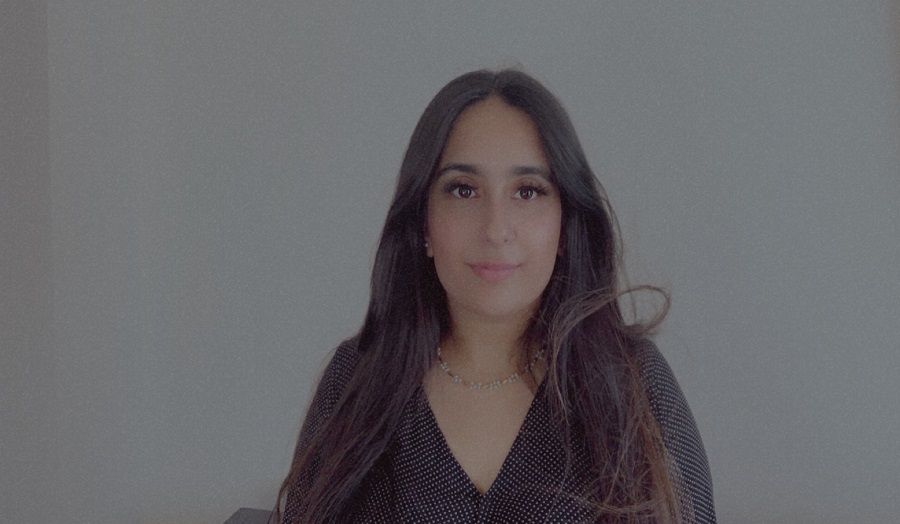Undergraduate chemistry student Fizaa Omran won the prestigious bursary and got the chance to participate in a research project.
Date: 25 August 2022
Chemistry student Fizaa Omran was awarded the Royal Society of Chemistry Undergraduate Research Bursary earlier this year. This enabled her to participate in a research project, applying the theory she had learned in the classroom within a lab environment.
Fizaa’s chosen project was to synthesise and examine the photophysical properties of multi-metallic complexes. It was a project that she had deep interest in, and that she knew would provide her new opportunities. “I applied to the research bursary as it was a unique opportunity for me to work alongside faculty member Daniel Sykes, on a research project. I also got to do things I’d never done before, like photophysical characterisation which was my favourite.”
Daniel Sykes is Head of Chemical and Pharmaceutical Sciences at London Met, and is the course leader for Chemistry BSc, “Fizaa worked really well in the laboratory and produced some high quality results. The RSC bursary is a great way for students to gain paid experience of working in a research laboratory.”
The purpose of the Royal Society of Chemistry’s Research Bursary is to give experience of research to undergraduates with research potential and to encourage them to consider a career in scientific research.
For Fizaa Omran, the process of earning the bursary and completing the research project has allowed her to develop the skills needed for a career in chemistry. “The experience I gained in Nuclear Magnetic Resonance, mass spectrometry, spectrofluorimetry and lifetime measurements alongside many other new methods will be very useful for my future”
Fizaa’s research project also inspired her to pursue a PhD and introduced her to new potential career paths. “I have discovered the following doctoral training, where the application of chemistry to aid medical imaging really appeals to me. I learned about it in lectures, and I feel like this research placement has given me an idea of what it's like to complete a research project.
She applied to the bursary specifically to gain hands-on experience as an undergraduate, explaining that “It was extremely beneficial to me because it allowed me to further develop my skills. This research bursary enabled me to enhance my analysis and problem-solving skills and, by working on this project, it helped me build on my knowledge of inorganic chemistry by having a deeper understanding of the scientific processes behind the project.”
Breaking down her project Fizaa explains “the first process in my project was to complete simple reactions to produce emissive Ir (III) complexes, which were then confirmed by mass spectrometry and 1 H NMR. Following the successful synthesis of monometallic Ir (III) complexes, we produced multi-metallic complexes and used 1H NMR and mass spectrometry to confirm the results. Then we did full spectroscopic characterizations, such as lifetimes, emission, and quantum yields.”

